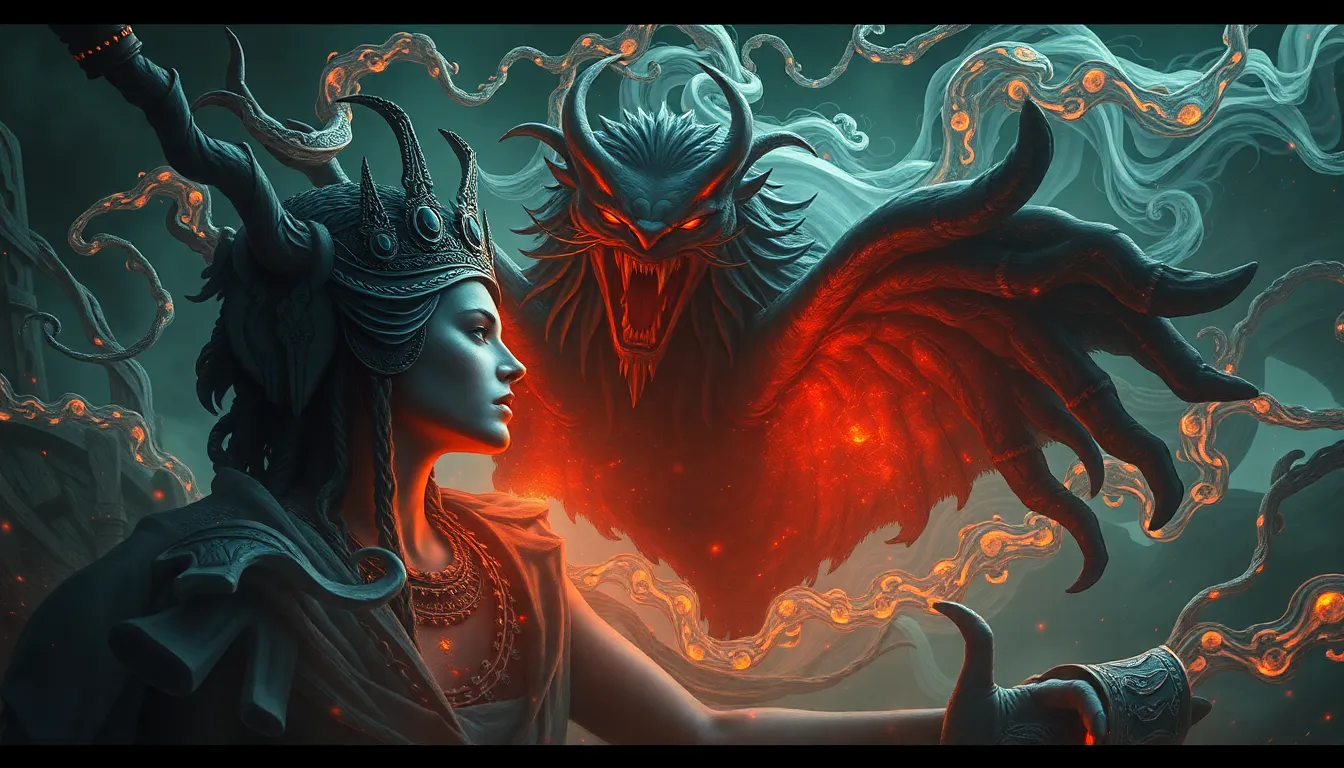The Secret Lives of Ancient Deities: Love, Betrayal, and Revenge
Introduction: Unveiling the Divine Narrative
The mythology of ancient civilizations is rich with tales of deities who embody the complexities of human emotion and experience. From the mighty gods of Olympus to the enigmatic figures of Norse legends, these ancient beings were not just omnipotent entities but also shared in the very human experiences of love, betrayal, and revenge. The stories surrounding these deities illustrate the intricate layers of their relationships and provide insight into the values and beliefs of the cultures that worshipped them.
The Nature of Deities: Beyond Omnipotence
Ancient deities were often depicted with human-like traits, showcasing a range of emotions that shaped their narratives. Unlike the distant gods of modern interpretations, these ancient figures were deeply involved in the affairs of mortals. They experienced:
- Love: Passionate and tumultuous relationships.
- Betrayal: Moments of treachery that led to catastrophic consequences.
- Revenge: Acts driven by anger and a desire for justice.
These emotions made the stories of the gods relatable and engaging, allowing ancient societies to reflect on their own lives through the lens of the divine.
Divine Love: The Bonds That Transcend Mortality
Love among the gods often served as the foundation for many mythological tales. Notable relationships include:
- Zeus and Hera: A complex relationship marked by jealousy and power struggles.
- Aphrodite and Ares: A passionate romance that defied divine norms.
- Osiris and Isis: A tale of love and resurrection that symbolizes eternal devotion.
These relationships were not only central to the myths but also illustrated broader themes of fidelity, loyalty, and the consequences of divine love, often reflecting the societal norms of the cultures that revered them.
The Dark Side of Love: Betrayal Among the Gods
With love often came betrayal, showcasing the darker aspects of divine relationships. Instances of infidelity and treachery include:
- Loki’s Treachery: A master of deception, Loki’s betrayal of the gods led to immense chaos and ultimately, the doom of Asgard.
- The Fall of Persephone: Hades’ abduction of Persephone is a poignant reminder of betrayal and the resulting emotional turmoil among the gods and mortals alike.
The consequences of these betrayals were profound, often resulting in divine retribution or catastrophic events, reflecting the belief that love, when tainted by deceit, could lead to ruin.
Revenge: The Wrath of the Deities
Revenge is a recurring theme in the narratives of ancient deities, often serving as a catalyst for major events. Case studies include:
- Medusa’s Curse: A tragic tale of betrayal that transformed Medusa into a monster, showcasing the dire consequences of divine anger.
- The Trojan War: Spurred by divine grievances and the quest for vengeance, this epic conflict highlights the destructive power of revenge among the gods.
These narratives often carried moral implications, questioning the righteousness of revenge and its impact on both gods and mortals, serving as cautionary tales for the societies that told them.
Cultural Reflections: How Ancient Societies Interpreted Divine Relationships
Ancient deities played a vital role in shaping cultural norms and values. Different cultures interpreted divine relationships through their unique lenses:
- Greek Mythology: Focused on the complexities of love and the consequences of betrayal, reflecting the values of honor and respect.
- Roman Mythology: Adapted Greek stories but emphasized duty and state over personal emotions.
- Egyptian Mythology: Highlighted the importance of family ties and the cyclical nature of life and death.
- Norse Mythology: Emphasized fate and the inevitable consequences of actions, often intertwining love and revenge.
These cultural narratives provided frameworks for understanding human experiences and offered explanations for the world around them.
Symbolism in Divine Stories: Love, Betrayal, and Revenge
Symbols enhance the understanding of themes in divine stories, offering deeper insights into the emotions and motivations of the deities. Examples of symbolism include:
- The Apple of Discord: Represents the chaos that can arise from envy and betrayal.
- Medusa’s Hair of Snakes: Symbolizes the transformative power of betrayal and the protective nature of vengeance.
Artifacts, art, and literature depicting these divine relationships often reveal the complexities of love and betrayal, enriching our understanding of ancient beliefs and values.
Modern Interpretations: The Legacy of Ancient Deities
The influence of ancient myths continues to resonate in contemporary literature and media. Modern interpretations often explore themes of love, betrayal, and revenge through various lenses:
- Literature: Novels and poetry often draw on mythological themes to explore human emotions.
- Film and Television: Many adaptations of ancient myths highlight the timelessness of these narratives.
- Art: Modern artists reinterpret ancient symbols to comment on current societal issues.
These interpretations allow modern audiences to connect with ancient narratives, exploring their relevance in today’s world.
The Enduring Appeal of Divine Drama
The stories of ancient deities resonate with audiences today for several reasons:
- Relatability: The emotional experiences of the gods mirror our own struggles with love, betrayal, and vengeance.
- Timeless Lessons: These narratives often contain moral lessons that remain relevant across generations.
- Escapism: The grandeur of divine stories allows audiences to escape into a world of myth and magic.
Thus, the allure of divine drama persists, captivating the imagination and fostering a deeper understanding of human nature.
Conclusion: The Timelessness of Divine Intrigue
In conclusion, the secret lives of ancient deities reveal a tapestry woven with themes of love, betrayal, and revenge. These narratives not only entertain but also provide profound insights into human nature and societal values. By reflecting on the stories of these ancient beings, we glean valuable lessons about the complexities of relationships and the enduring power of emotions. The timeless intrigue of divine drama continues to resonate, reminding us that the struggles of the gods are, at their core, reflections of our own experiences.



